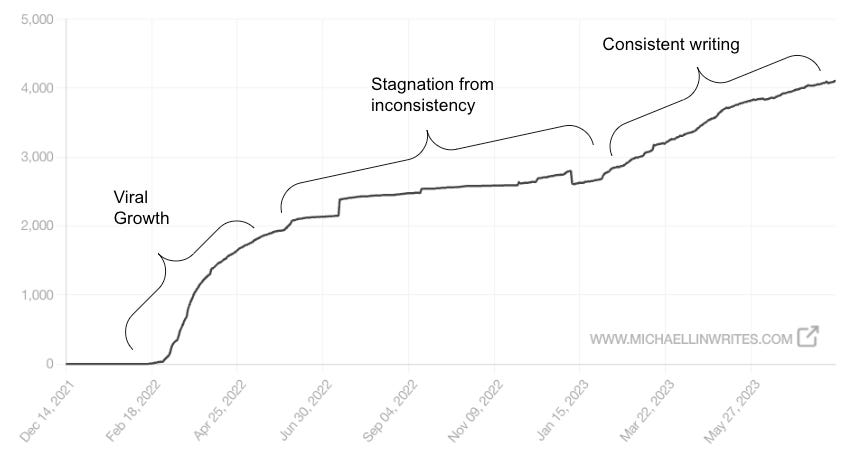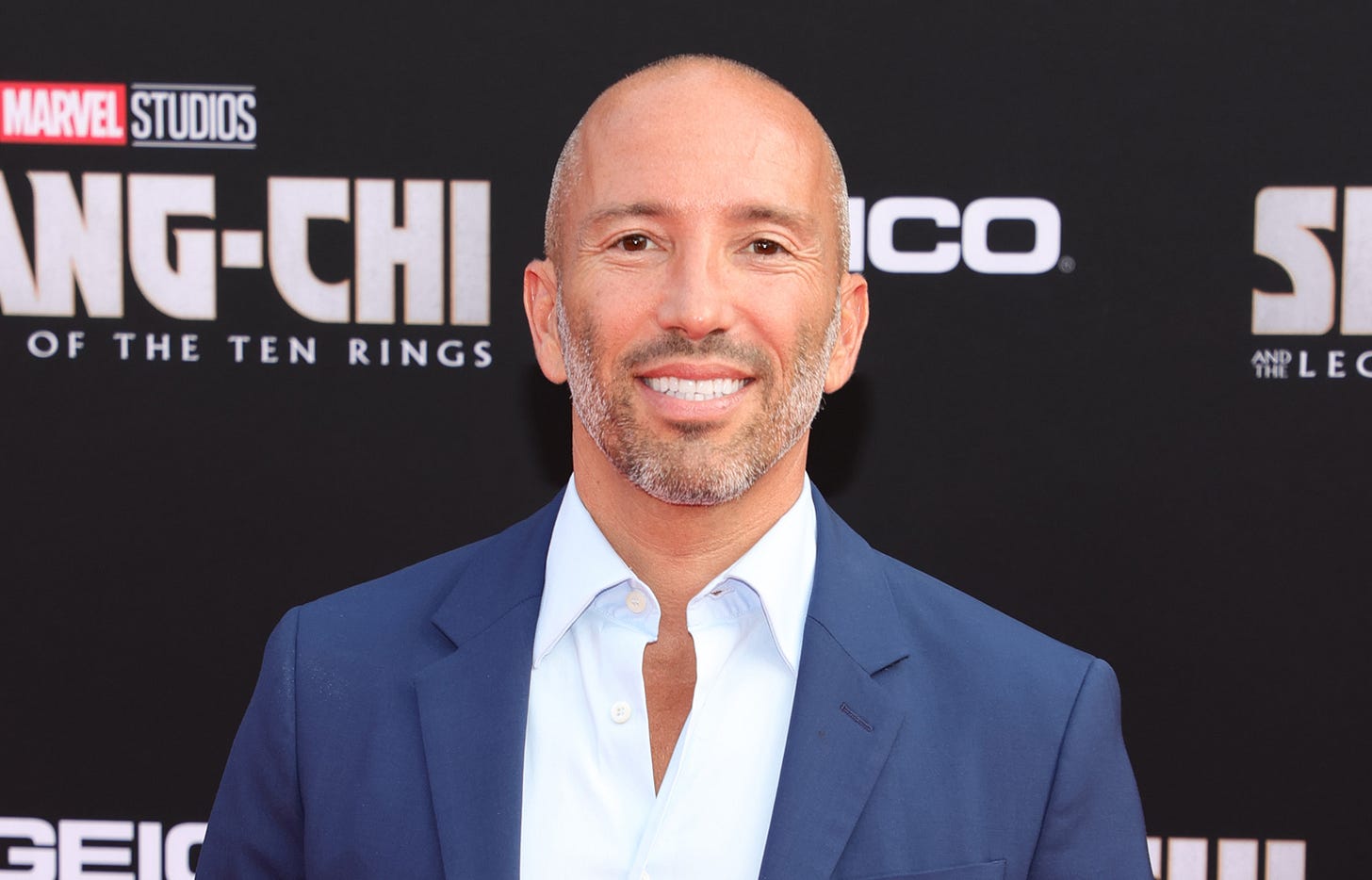What Would You Do If You Had To Start a Career Coaching Business?
3 Principles I Would Follow If I Had to Build a Coaching Business From Scratch
📣 Announcements
I’m offering a 10% referral bonus (up to $1,000) if you refer someone who needs a ChatGPT app built to All-In Consulting.
Have them mention your name, and I’ll reach out when the deal closes.
I met someone recently who quit their corporate job.
In their previous role, they were high up in engineering management, and now they wanted to start a career coaching business for software engineers.
Their initial idea was to sell long-term coaching packages, and they asked me for advice on what to do to accelerate growth.
Here’s what I told them.
If I’ve learned only one thing from the last 1.5 years of entrepreneurship, it’s that you can’t blindly copy what other coaches do.
What works for one person might not necessarily work for you because every person has different skills and assets.
However, there are a few principles that I would abide by if I had to start a coaching business from scratch:
Run new growth experiments every single week
Don’t get tied down to any one idea (coaching included)
Get a consistent content engine going from the very beginning
Following these principles can save you many months of frustration by helping you discover the tactics that work for you, faster.
Try Running One New Growth Experiment Per Week
If there was only one piece of advice I could give this career coach, it would be to run a new growth experiment every single week.
At the end of each week, they should be able to point to a concrete new tactic they tried to attain more leads.
For example, the first week, they could set up a coaching website and point all their social media profiles to that website.
The second week, they could try launching a referral program.
The third week they could try running ads.
The fourth week they could try to set up their profile on a coaching marketplace.
The fifth week they could try to launch a free e-book giveaway.
The sixth week they could try posting content on a platform they’ve never posted on before.
And so on.
Whatever you do, just make sure that each project doesn’t take too long to execute (i.e. more than two weeks) and that they consist of both long-term and short-term growth projects.
Short-term projects (like e-book giveaways or video courses) can help provide an immediate spike in growth, while the long-term projects (like writing a newsletter) require consistent effort to see results, but compound over time.
Running new experiments is crucial because of the way the math works out for lead generation in coaching businesses.
For example, if you launch a referral program, and that gets you one lead a week, that alone isn’t that much.
If you try posting on LinkedIn all day, and that gets you one lead a week, that also isn’t that much.
But if you:
run ads
do interviews
post on Twitter
post on LinkedIn
launch a community
write a newsletter
launch a referral program
reach out for partnerships
do a speaking engagement
onboard onto multiple different marketplaces
and more - that’s a lot of channels you’ve built up over time.
And if each of these channels get you one lead a week, collectively now you’re looking at a lead a day!
And at 7 leads a week, surely some of them will convert into potential clients.
But at the beginning, you likely won’t know which channels will work and which ones won’t, so you have to try new channels and stack as many as possible together to build up this pipeline.
So if there is one metric you track your progress by, it should be the number of new growth experiments you are running every month.
Over time, I’m certain you’ll find something that ends up working for you!
Be Flexible About What Works and What Doesn’t
The next piece of advice that I gave this coach is to not be too attached to their current idea because what ends up working may look very different than what their current offering is.
If they stay too narrow-minded about what they might want to work, they may end up trying to make something difficult work for a long time and miss easier opportunities in front of them.
For example, this coach said they want to do career coaching for software engineers through long-term coaching packages.
But they may soon discover that perhaps software engineers weren’t looking for this exact offering and the coach may have to try different tactics including:
Community building like Taro
Using career advice content as lead gen for a jobs board instead
Offering long-term coaching but focused on executive clients with larger budgets instead of engineers
Niching down by specializing in salary negotiations
Or switching from giving career advice for engineers to consultants instead (which this coach had a background in as well)

Whatever they do, they should view their current positioning statement as a hypothesis that they will have to revise over time before they find service market-fit.
I can already foresee this happening because…I tried career coaching for a while too and only made $4k total from that experiment. Afterwards I made a series of pivots including:
Pivoting from career coaching to engineering consulting when I discovered that people booked me to ask for engineering advice instead of career advice
Pivoting from consulting to building products for clients, because I realized that delivering software offered the most value to my clients
Pivoting from building MVP’s to ChatGPT integrations because it was more niche, there was a higher margin, and it was easier to scale as the backend was similar between products
Had I stayed adamant about making my first attempt with career coaching work, I would’ve missed out on all the consulting opportunities that came after.
So my recommendation to this entrepreneur is that while it’s good to start off with career coaching, they should remain open to changing their offering should they discover a better opportunity instead, even if it means doing something other than 1:1 career coaching.
Getting a Consistent Content Engine Going Early
Lastly, no matter what strategy they pursue, there needs to be some sort of consistent content engine going, with the keyword being consistent.
Before I had this mistaken belief that if I just wrote a couple high quality pieces, it would be enough to coast on for the rest of my consulting/coaching journey.
But when I became inconsistent with my content, my growth plateaued for many months.
Those are months I wish I got back.

The content schedule that I’ve seen work for most people include publishing longer-form content (like YT videos and newsletter articles) once a week, and publishing shorter-form content (like Tweets, LinkedIn posts, and TikTok videos) every day or every other day.
It may seem difficult at first, but over time the content creation will get easier.
I went from spending 6 weeks on my first article, to 30 hours on the next one, to 20 hours, to 10 hours, and now, I can finish a newsletter article in about 6 hours.
I suspect you will get faster at content creation over time too if you keep at it.
It may feel like you’re shouting into the void when you start off, but I promise that 6 months down the road, you will start to see your coaching business grow as your content engine grows with it.
Final Thoughts
Following just these three pieces of advice alone will save you almost a year of bumbling around that I did. But even so, I left this coach with a final reminder that good things take time.
This coach that I spoke with often counted their entrepreneurship journey in terms of days, (eg “I’m day X into entrepreneurship”).
And it’s likely that they are still in the “initial enthusiasm” stage below:
But entrepreneurship is a game counted in years, not days. And the wins will likely take longer than they think.
Nathan Barry, the CEO of ConvertKit, said 2 years into building his SaaS, he was still at $2k/month and about to quit right before he had his first $100k/month.
Jason Oppenheim founded a real estate brokerage specializing in the most expensive real estate around Los Angeles, and he looks really successful now.
But he said in several interviews that he didn’t even cross $100k in income until year 3.
In fact he said he didn’t even make a dollar for the first 8 months of starting his business.
So you’re probably already doing better than him!

I truly believe that as long as this coach doesn’t give up, they too will find their unique path to success as well.
Because good things take time.
Whenever you're ready, there are 2 ways I can help you:
If you’re an engineer looking for career advice, I highly recommend checking out Taro.
It’s run by my friend Rahul, and it’s a community of software engineers all looking to level up in their career.
Use this link to get 20% off when you register!“How to Be an Engineer Influencer” - where I teach W-2 employees how to diversify their income streams by building an audience on social media.
Connect with me on social media here.






Amazing advice! Came at a great time for me who is starting out with my own growth experiments now! :)